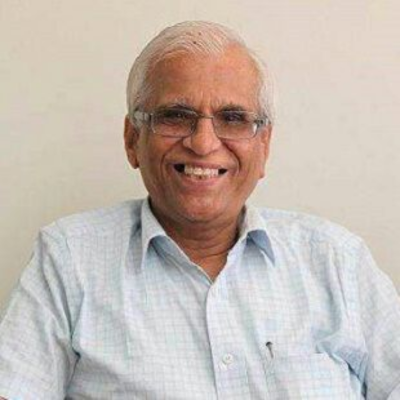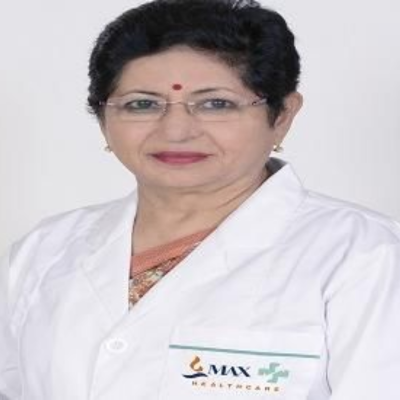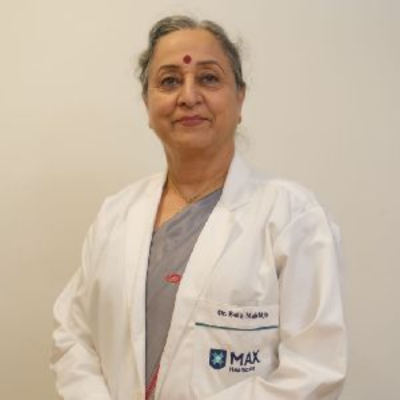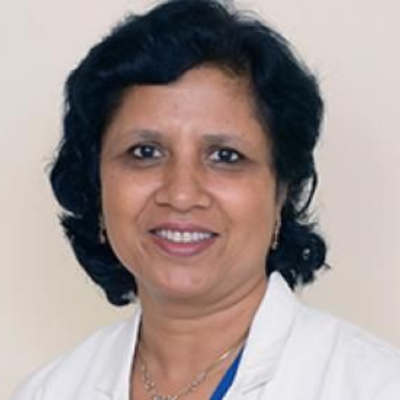PCOS and PCOD: Learn the Symptoms, Differences, and Treatment Options
 21 November,2024
Read More
21 November,2024
Read More
Enquire now in case of any assistance needed
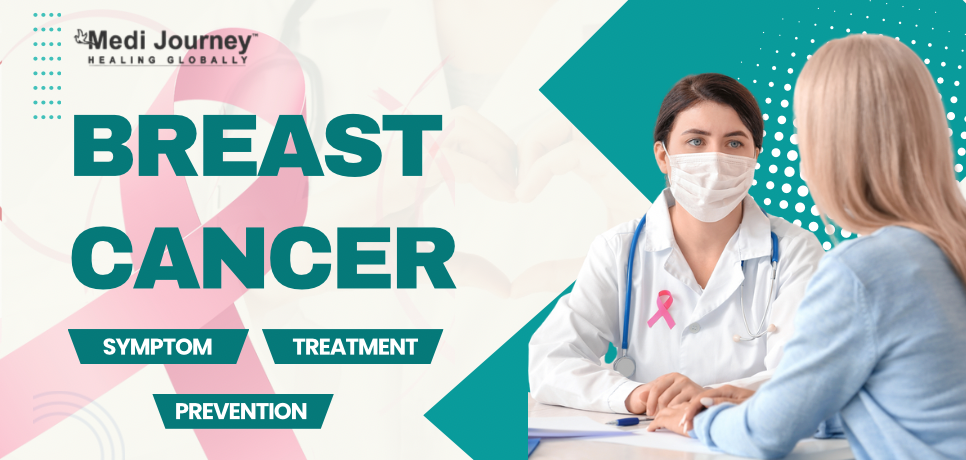
Breast cancer is a growing concern among the medical fraternity all over the world. With one woman being diagnosed with breast cancer every 4 minutes, it is one of the highest prevailing cancers in India. There is a need for spreading awareness about the disease as ~50% of patients visit doctors when the cancer has reached stage 3.
Early diagnosis or detection plays a vital role in cancer treatment. When diagnosed in the initial stages, breast cancer has a 5-year survival rate of 99%. And here is another good news. With constant improvements in cancer screening and genetic studies, oncologists can now easily detect breast cancer in the early stages. The number of people dying due to breast cancer is gradually decreasing. This blog will help you understand breast cancer's symptoms, prevention, and treatment.
Breast cancer is a disease condition marked by the turning of normal cells in the breasts into cancerous cells. They start dividing uncontrolled and form a cluster known as a tumor. When cancerous cells from the breast spread to other body parts and start dividing there, it is known to metastasize.
The breast is made up of ducts (milk-carrying ducts), lobules (milk-producing glands), and connective tissues (fibrous and fatty tissue). Breast tumors can originate from any of these parts.
Breast cancer of various types can be classified in the following ways –
A mutation in the DNA of the breast cells causes breast cancer. However, why exactly the mutations occur and the exact reason for breast cancer is still unknown. Several risk factors are found to be linked with breast cancer. These are –
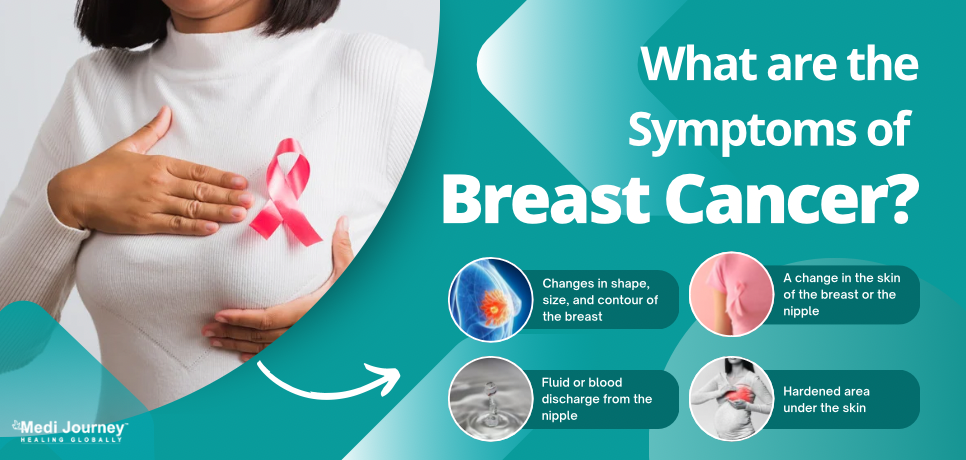
The breast cancer affects the breast tissue in multiple ways. Different people can have various symptoms. It is also possible for breast cancer to not show any specific symptoms in the initial stages. But when it does, symptoms include –
Breast cancer screening is the best way to diagnose the disease early. It involves examining breasts before there are any signs and symptoms of the disease. If the oncologist suspects any lumps or changes in the breast, they will do the following tests to confirm their diagnosis.
If the diagnosis of breast cancer is confirmed, the oncologist will order a few more tests to decide the best course of treatment based on the type of cancer cells. These include –
Prevention is always better than cure. Anyone can reduce the chances of developing breast cancer by following measures such as –
Everyone is born with breast tissues. Although rarely, men can also develop breast cancer at any point in life. 10 out of every 1000 breast cancer cases diagnosed in the US is male. The most common types of breast cancer in males are invasive ductal carcinoma and ductal carcinoma in situ. Symptoms of male breast cancer are lump/swelling in the breast, redness in the breast, fluid discharge from nipples, irritation of breast skin, and pulling in of the nipple.
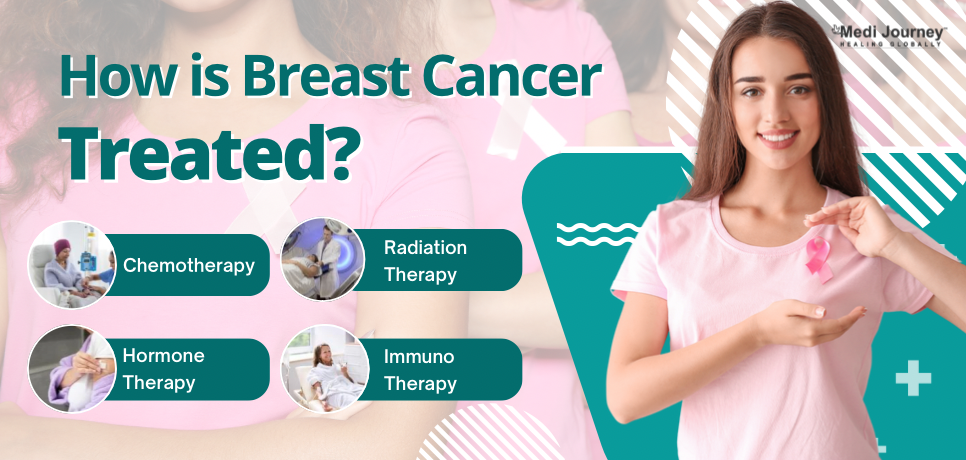
There are many treatment plans for breast cancer. Surgery is done in almost every case. It is then followed by chemotherapy and radiation therapy. A cancer specialist will decide the best course of treatment for the patient based on the type and stage of the cancer. A combination of the following treatment modalities is used for breast cancer treatment.
Surgery for breast cancer involves removing the tumor and nearby lymph nodes. There are various types of surgeries to treat breast cancer. These include –
Once diagnosed with breast cancer, everyone thinks about getting the best treatment. But at the same time, they think about the survival rates as cancer is known to be a fatal disease. Your treating oncologist will tell you about the prognosis of your disease. Prognosis means how the disease will go for you. Breast cancer prognosis depends on multiple factors such as type and stage of cancer, how fast it is growing, your age, overall health, and how the cancer responds to the treatment.
Treatment of breast cancer has a high success rate, especially in the initial stages. The success is measured in terms of 5-year survival rates. The combined 5-year survival rate of breast cancer is around 90%.
The age-wise 5-year survival rate of breast cancer is as follows –
Breast cancer affects men and women in every country. Over 2.3 million cases are diagnosed annually worldwide. The disease can run in your family without you knowing. Regular screening is essential to diagnose breast cancer in the early stages. The chances of beating breast cancer are as high as 100% when the tumor is localized. With the correct information and help, you can defeat the fatal disease. Consult an oncologist today and save your future.
Doctor of Pharmacy
Dr. Deepanshu Siwach is a skilled clinical pharmacist with a Doctor of Pharmacy degree. He has 4+ years of experience and has worked with thousands of patients. He has been associated with some of the top hospitals, such as Artemis Gurgaon and Teerthanker
Dr. Vivek Gupta is an experienced Surgical Oncologist with over 16 years of practice....
Senior Consultant
Medical Oncologist
Nanavati-Max Super Speciality Hospital, Mumbai
Book an Appointment Talk To ExpertSenior Director
Gynecologist and Obstetrician, IVF Specialist
Max Super Speciality Hospital, Shalimar Bagh, New Delhi
Book an Appointment Talk To ExpertSenior Director
Gynecologist and Obstetrician, IVF Specialist
Max Smart Super Speciality Hospital, Saket, New Delhi
Book an Appointment Talk To ExpertSenior Director
Gynecologist and Obstetrician
Max Smart Super Speciality Hospital, Saket, New Delhi
Book an Appointment Talk To ExpertSenior Director
Gynecologist and Obstetrician
Max Smart Super Speciality Hospital, Saket, New Delhi
Book an Appointment Talk To ExpertSenior Director
Gynecologist and Obstetrician
Max Smart Super Speciality Hospital, Saket, New Delhi
Book an Appointment Talk To ExpertFill up the form and get assured assitance within 24 hrs!
The Art of Effective Communication
 05 November,2024
Read More
05 November,2024
Read More
 29 October,2024
Read More
29 October,2024
Read More
 28 October,2024
Read More
28 October,2024
Read More
Trusted by Patients
"I am Asim from Bangladesh and was looking for treatment in India for neuro. I visited many websites to get the complete information regarding the treatment but I was not satisfied as I was getting confused. In the meanwhile, one of my friends suggested I seek help from Medi Journey as he experienced his medical journey very smoothly and was satisfied with it. They have filtered the top 10 doctors as per experience, the success rate of surgery & profile, so it helps us to choose the best treatment in India. "
"For my knee surgery, Medi Journey guided me to BLK Hospital where I received exceptional care. The team's support and the expertise at BLK Hospital exceeded my expectations. Thank you Medi Journey for making my medical journey stress-free. "
"I came from Iraq for my granddaughter's eye surgery in India facilitated by Medi Journey, due to critical cases they advised us to get a second opinion from the different hospitals before going to surgery. Finally, we went to Fortis Escort Hospital, which helped us to get more confidence for diagnosis. Fortis Escort Hospital has the best eye surgeon team with the latest instruments. Thanks to all team members for providing a high-quality treatment in India at an affordable cost. "
"I came for my hair transplant in India, before coming I was so confused about choosing the best clinic and surgeon for me. But thanks to God one of my friends had a hair transplant in India through Medi Journey. He recommended me to go with them. I am completely happy with my experience with them. They were always very fast in their responses to me. the success rate of my hair transplant surgery is 100%."
"Artemis Hospital, suggested by Medi Journey, turned out to be a great choice for my treatment. The personalized assistance and medical care were exceptional. I'm grateful to Medi Journey for guiding me to a hospital that perfectly matched my needs. Highly recommended! "
"I came from Afghanistan for my treatment in India at Jaypee Hospital, Noida. I had a fantastic experience with Medi Journey. Kudos to them for their incredible support during my medical journey. They not only took care of all the logistics but also connected me with a fantastic healthcare team. Efficient, caring, and highly recommended for a hassle-free medical tourism experience."
"I am Adam from Kano, Nigeria, one of my friends from Nigeria was facilitated by Medi Journey, and he recommended us to go with them. I sent my all reports to them and within 48 hours they reverted with 4 options from different hospitals. They helped me to get a Visa letter from the hospital, arrange pick-up from the airport, and book a hotel for me. Their team is very honest and throughout our stay in India they are with us they are caring for us like his family members. BLK Hospital is the best hospital in India with a top surgical oncologist surgeon team, a very advanced OT, and a Radiotherapy department. I wish more success to Medi Journey. "
"Great experience at the Max Hospital for my spine surgery and was successfully done. I thank my neurosurgeon and his entire team. I recommended all of my country's people to Medi Journey for treatment in India, they choose the best hospital, the best doctors, and the best cost for patients."
"I came to India from Dhaka, Bangladesh for my father-in-law's cardiac surgery at Fortis Hospital. I was confused about choosing the best surgeon for him before coming, but their team helped me to choose the best hospital and best cardiac surgeon in India with very good cost and 100% success rate of surgery. I am very happy with the services, really they make my journey so comfortable that make me feel at home. Thanks again and I like people to choose "Medi Journey" as your travel guide. "
"I am Mohammad from Bangladesh came to India for my general health checkup. Medi Journey offers me the complete package including Pick-up from the airport, hotel services, and 24-hour assistance. They guide you to choose the best hospital in India, the best cost of treatment with top-most doctors and give you complete information about hotel booking, and pick-up from the airport before coming to India They have the best team to help. Always choose Medi Journey for your treatment in India."
